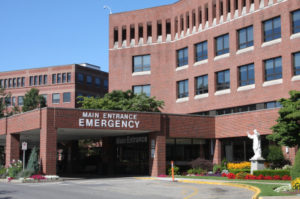SNAP Looks to the Future
With the inauguration of a new governor and the start of a new legislative session, the Safety-Net Association of Pennsylvania (SNAP) has prepared a series of four papers for leaders of the new Wolf administration and legislative and committee leaders and staff.
 The fourth of those papers, released this week, addresses the importance of innovation in addressing the challenges safety-net hospitals face in leading the way to serving Pennsylvania’s growing Medicaid population.
The fourth of those papers, released this week, addresses the importance of innovation in addressing the challenges safety-net hospitals face in leading the way to serving Pennsylvania’s growing Medicaid population.
The paper describes the new demands being made of hospitals by insurers, government, and others; tools through which to pursue innovation; the goals of future innovation; and the role that SNAP and safety-net hospitals must play in that innovation.
The first paper, “What is SNAP?”, was an introduction to the Safety-Net Association of Pennsylvania: what safety-net hospitals are, where they are located, whom they serve, and how they differ from other acute-care hospitals in the state.
The second paper, “The Challenges Pennsylvania Safety-Net Hospitals Face,” describes the special role safety-net hospitals play in serving low-income and medically vulnerable Pennsylvanians and the emerging challenges they face in fulfilling this vital role.
The third paper, “Transitioning Medicaid: Principles for Changing Course on Medicaid Expansion,” presents eight principles SNAP believes state officials should follow if they choose to abandon the Healthy Pennsylvania model of Medicaid expansion in favor of a more traditional approach to expanding the state’s Medicaid expansion.
Find all four SNAP papers here.






